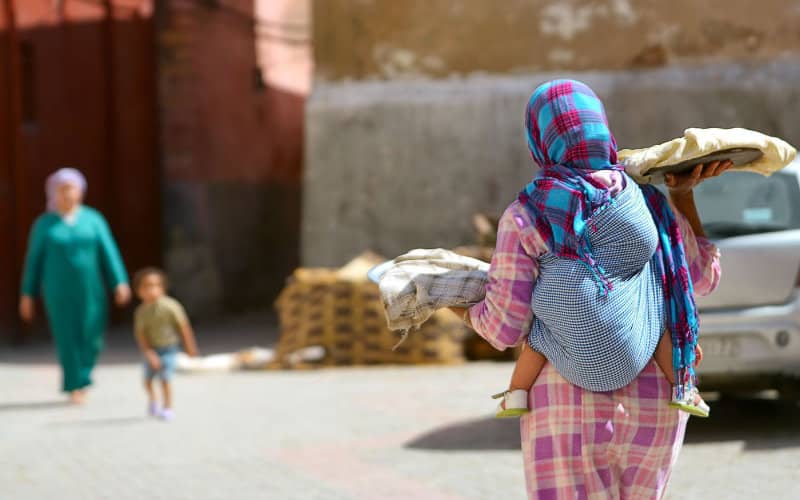Moroccan Court Ruling Denies Paternity Rights for Children Born Out of Wedlock

A confirmatory judgment rendered on April 17 by the Moroccan Court of Cassation upheld an appeal judgment rejecting the right to paternal filiation for children born out of wedlock, a right previously recognized by a decision of the Tangier court. A jurisprudential reversal denounced by the Democratic Association of Moroccan Women (ADFM) which sees it as a flagrant violation of the Moroccan Constitution.
By contradicting a previous decision rendered in 2017 by the court of first instance of Tangier which for the first time in Morocco recognized the filiation of a daughter born of an extramarital relationship, the Court of Cassation, according to the ADFM, creates "prejudice to the moral and material interests of children insofar as it is the highest judicial authority in Morocco supposed to reach various conclusions".
This judgment constitutes an affront to jurisprudence, protest the activists of the women’s association, stressing that the position of the court is a "retrograde interpretation and application of the Moudawana" moving away from the ins and outs of this law. In the eyes of these activists, justice legally consecrates the vulnerability of women seen as solely responsible for the advent of a child born out of wedlock. From a technical legal point of view, the ADFM considers that this judgment of the Court of Cassation is "an affront to jurisprudence, based on the strength of factual evidence, made by the Court of First Instance of Tangier...".
Going further, the association invites the Court of Cassation to comply in its judgments with the constitutional corpus and the legal framework relating to human rights while adopting a modern language accessible to all litigants.
Similarly, the association calls on parliament to adopt the organic law project on the exception of unconstitutionality and to urgently revise the Family Code in order to harmonize it with the constitution of the Kingdom and the international conventions relating to human rights, children’s rights and women’s human rights. The ADFM also calls on the legislator to accelerate the adoption of the organic law project on the exception of unconstitutionality in order to guarantee the non-violation of the rights guaranteed by the Constitution.
At the Ministry of Justice and the Higher Institute of the Judiciary, the ADFM wishes to see them on the front lines of training programs for judges, with the integration of subjects on international human rights conventions. The association also wishes to see the implementation of continuing training programs for the various branches of justice in the field of human rights in general, children’s rights and women’s human rights in particular.
Related Articles
-

Moroccan Customs Alert: 5 Critical Scenarios Requiring Declaration for Travelers and Expats
23 August 2025
-

Illegal Bakeries in Morocco: A Rising Health Threat to Consumers
22 August 2025
-

Trailblazing African-Italian Lawyer Vanishes During Casablanca Layover, Sparking International Search
22 August 2025
-

Reality TV Star’s Moroccan Dream Soured: Dog Drama Ruins Romantic Dinner in Agadir
22 August 2025
-

Marrakech Housing Crisis: Young Job Seekers Face Soaring Rents and Shrinking Options
22 August 2025